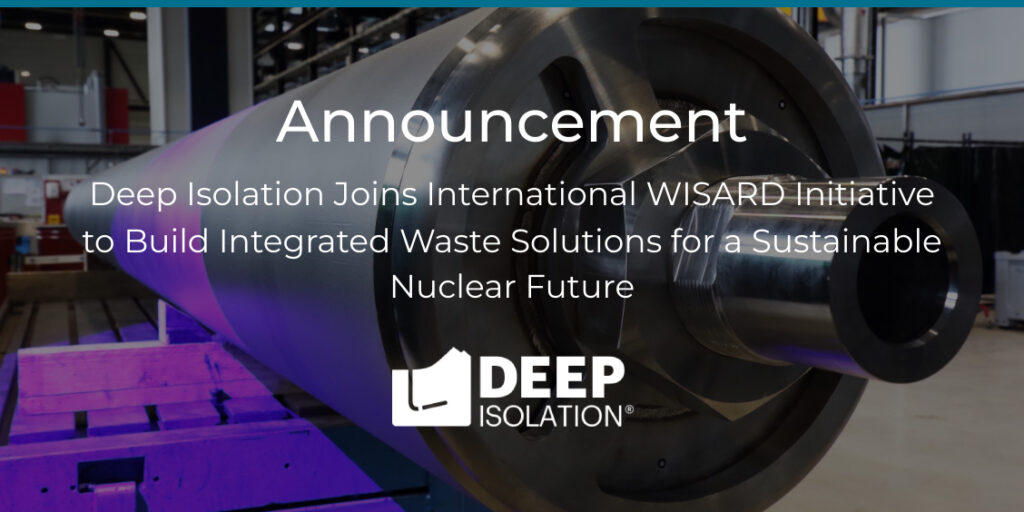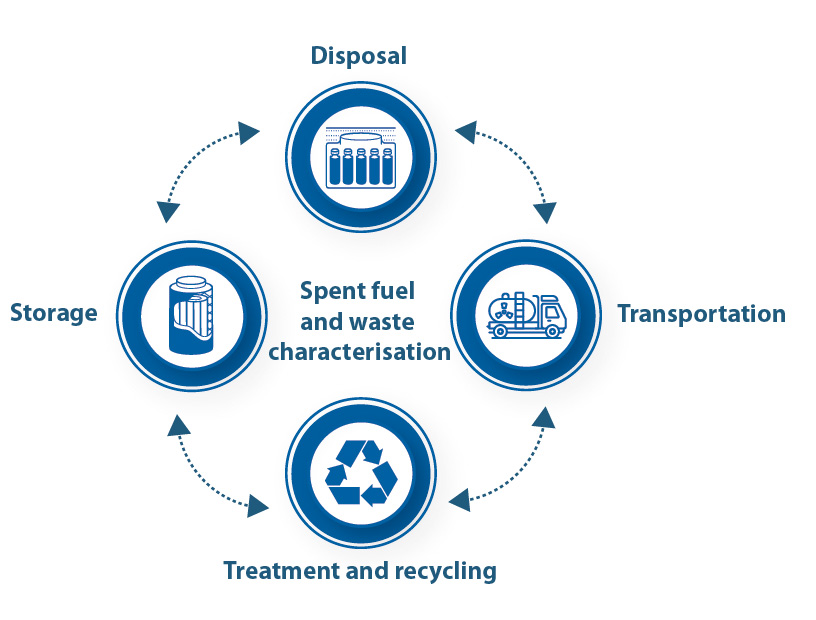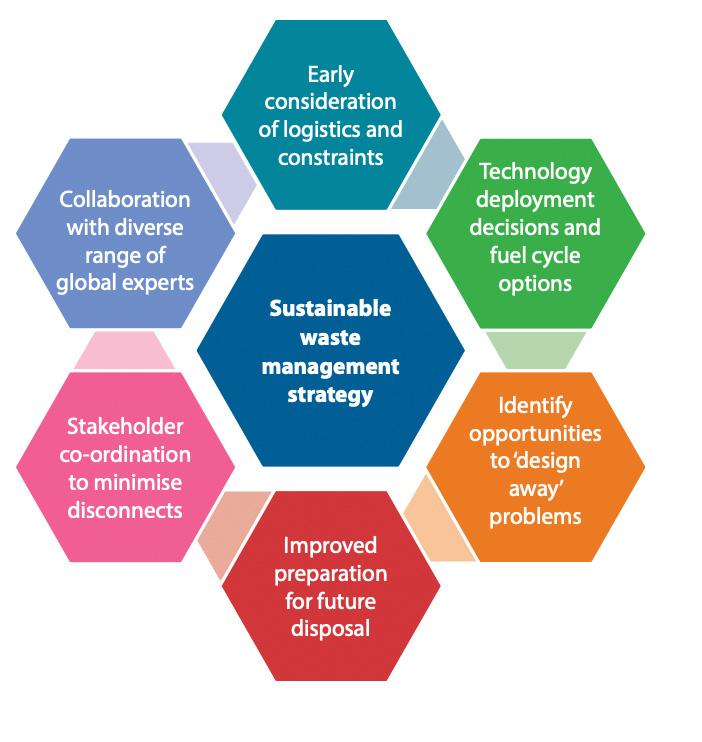BERKELEY, CA – Deep Isolation welcomes the release of a new national Action Plan by the U.S. Nuclear Industry Council (USNIC), outlining a path to implement President Trump’s vision for nuclear waste disposal as set forth in Executive Order 14302. The Action Plan for Transforming the Back End of the U.S. Nuclear Fuel Cycle provides a detailed roadmap for enabling permanent disposal of the nation’s spent nuclear fuel and high-level radioactive waste, and advances a public-private partnership model to move the nation forward.
The Action Plan offers a credible, consensus-driven roadmap to address the longstanding challenge of nuclear waste disposal in the United States. It calls for the creation of an independent waste management entity, access to existing Nuclear Waste Fund resources, and a collaboration-based siting process that empowers willing communities to partner in solutions. It also emphasizes the need for legislative reform and integration of innovative technologies like deep borehole disposal and advanced recycling.
“This is a pivotal moment for nuclear energy and for the country,” said Rod Baltzer, CEO of Deep Isolation and Chair of the USNIC Backend Working Group. “USNIC is providing an actionable plan on how to break through decades of paralysis on waste disposal. The Plan recognizes that the market is evolving, technologies are advancing, and communities are increasingly willing to be part of the solution.”
The plan directly supports Executive Order 14302, which calls for the revitalization of the nuclear industrial base and the establishment of a sustainable, long-term spent fuel strategy. The USNIC Action Plan turns the President’s vision into action, aligning industry consensus with clear steps to advance nuclear innovation, security, and waste solutions.
“We are fully committed to this vision,” said Baltzer. “By aligning the President’s Executive Order with a clear plan, we have a once-in-a-generation opportunity to make real progress on U.S. nuclear waste disposal, and to replace decades of inaction with solutions that are fiscally responsible, technically sound, and publicly supported.”
In particular, Deep Isolation strongly supports several key elements of the USNIC Action Plan, including:
- Accelerated deployment of innovative disposal technologies, such as deep borehole disposal, to create greater flexibility and reduce lifecycle costs.
- Streamlined regulatory pathways for non-traditional repository designs, aligning with IAEA and NRC modernization initiatives.
- Prioritization ofnear-term demonstration projects to establish technical feasibility and community consent.
- Public-private partnerships and competitive procurement, unlocking private sector investment and innovation in waste management.
- Expanded DOE engagement with interested communities, helping build momentum for locally-supported disposal solutions consistent with global best practices.
- The call for Congress to amend the 1987 Nuclear Waste Policy Act (NWPA) that has, for decades, blocked federal engagement with private-sector and community-led disposal efforts beyond Yucca Mountain.
To demonstrate its practical support for the aforementioned legislative update, Deep Isolation has submitted a formal proposal to deregulation.gov recommending that Congress revise NWPA Section 161 as proposed by the USNIC.
“We believe this targeted change would unlock meaningful progress,” Baltzer explained. “While full modernization of the Nuclear Waste Policy Act may ultimately be needed, this immediate step would empower the DOE to begin evaluating new disposal options, including Deep Isolation’s patented deep borehole disposal technology – and empower innovators to work with willing communities to develop safe, permanent, and cost‑effective options for the future.”
The proposed revision to NWPA Section 161 states:
- Delete: “The Secretary may not conduct site-specific activities with respect to a second repository unless Congress has specifically authorized and appropriated funds for such activities.”
- Replace with: “The Secretary may conduct, or may enter into a contract to conduct, site-specific activities with respect to a second repository. The Secretary may not prepare an application to the Commission for a license to construct a second repository unless Congress has specifically authorized and appropriated funds for such activities. Where a private-sector repository developer and an interested potential host community jointly request consideration of a repository site, the Secretary shall evaluate such request and report to the relevant congressional committees within 180 days. The Secretary may, consistent with existing authorities and appropriations, initiate site-specific activities or enter into contracts under this section in response to such a request.”
###
About Deep Isolation
Named as one of Goldman Sachs’ Top 30 Startups in carbon capture, hydrogen power, and nuclear energy, Deep Isolation is the first company commercializing nuclear waste disposal in deep boreholes. It offers a uniquely tailored solution to help countries complete the necessary steps to dispose of their waste inventories. With 87 patents issued to date, it leverages proven drilling practices to safely isolate waste deep underground in horizontal, vertical, or slanted borehole repositories. Deep Isolation’s Universal Canister System (UCS) was developed through a three-year project funded by the U.S. Department of Energy’s Advanced Research Projects Agency -Energy (ARPA-E), and is engineered to support integrated management of spent fuel and high-level waste from advanced reactors across storage, transportation and eventual disposal.
For more information, visit: deepisolation.com
For media inquiries, please contact: media@deepisolation.com
###



